 August 2024 in “Frontiers in Public Health”
August 2024 in “Frontiers in Public Health” Alopecia Areata severely impacts mental health, causing anxiety and depression, affecting quality of life.
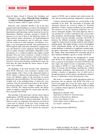 January 2006 in “Fertility and Sterility”
January 2006 in “Fertility and Sterility” The book provides a detailed guide on managing Polycystic Ovary Syndrome and is useful for physicians.
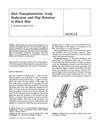 8 citations,
January 1986 in “The Journal of Dermatologic Surgery and Oncology”
8 citations,
January 1986 in “The Journal of Dermatologic Surgery and Oncology” Hair loss surgeries like grafts, scalp reductions, and flap rotations can be effective for black men with proper technique adjustments.
 October 2023 in “bioRxiv (Cold Spring Harbor Laboratory)”
October 2023 in “bioRxiv (Cold Spring Harbor Laboratory)” Blocking both main energy pathways can stop hair follicle stem cell-induced skin cancer growth.
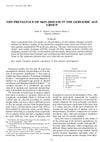 23 citations,
August 1987 in “Australasian Journal of Dermatology”
23 citations,
August 1987 in “Australasian Journal of Dermatology” Older adults in Ottawa commonly have skin conditions like sun damage, dry skin, and hair loss.
20 citations,
November 2008 Vitamin D is important for regulating calcium, phosphate, and hair health.
 1 citations,
May 2023 in “Journal of molecular evolution”
1 citations,
May 2023 in “Journal of molecular evolution” Pangolins have lost some skin-related genes, but kept others, leading to their unique scales and skin features.
 1 citations,
December 2022 in “bioRxiv (Cold Spring Harbor Laboratory)”
1 citations,
December 2022 in “bioRxiv (Cold Spring Harbor Laboratory)” Pangolins have lost some skin-related genes, but kept others, showing complex skin evolution.
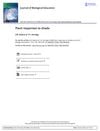 1 citations,
September 1984 in “Journal of Biological Education”
1 citations,
September 1984 in “Journal of Biological Education” Plants change their growth in response to shade based on light signals detected by phytochrome.
18 citations,
August 2011 in “Medical Hypotheses” Physical inactivity is a primary cause of many human illnesses.
 4 citations,
December 1997 in “Clinical Endocrinology”
4 citations,
December 1997 in “Clinical Endocrinology” Spironolactone may help reduce hair loss in androgenic alopecia.
 82 citations,
May 2009 in “BJCP. British journal of clinical pharmacology/British journal of clinical pharmacology”
82 citations,
May 2009 in “BJCP. British journal of clinical pharmacology/British journal of clinical pharmacology” Caffeine penetrates human skin in lab tests similarly to real-life conditions, but actual skin use is still essential for accurate results.
 67 citations,
February 2020 in “Journal of Ginseng Research”
67 citations,
February 2020 in “Journal of Ginseng Research” Korean Red Ginseng has beneficial components that help with stress, immunity, fatigue, memory, blood flow, and disease protection.
57 citations,
April 2009 in “The Journal of Steroid Biochemistry and Molecular Biology” Steroidogenesis inhibitors change but don't stop androgen production in prostate cancer.
 46 citations,
September 2014 in “Steroids”
46 citations,
September 2014 in “Steroids” Plant steroid hormones show growth, health, and medicinal benefits in various organisms, including potential for treating diseases.
36 citations,
July 2004 in “Apmis” Fluorescent proteins in mouse models effectively visualize tumor blood vessel growth.
27 citations,
April 2012 in “Pediatrics in review” Common skin fungal infections can suggest a weak immune system, and for scalp infections, pills work better than creams, with several drug options available.
 15 citations,
October 2015 in “PLOS ONE”
15 citations,
October 2015 in “PLOS ONE” The Chinese version of the PCOS quality of life questionnaire is reliable and valid for Chinese-speaking women with PCOS.
12 citations,
October 1981 in “International Journal of Cosmetic Science” Effective anti-dandruff products work well against scalp microbes and stick to the skin.
 12 citations,
January 1981 in “Springer eBooks”
12 citations,
January 1981 in “Springer eBooks” Environmental factors like temperature and nutrition affect hair growth, with humans showing seasonal hair growth differences.
 11 citations,
July 2021 in “Physiologia Plantarum”
11 citations,
July 2021 in “Physiologia Plantarum” SIPHL1 from tomato enhances plants' response to low phosphate levels.
 10 citations,
January 2010 in “Springer eBooks”
10 citations,
January 2010 in “Springer eBooks” Asian hair restoration surgery requires different methods due to the unique characteristics of Asian hair, such as its sparseness and coarseness.
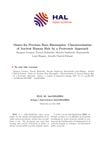 7 citations,
June 2017 in “Omics”
7 citations,
June 2017 in “Omics” The study developed a method to analyze ancient hair proteins using very small samples.
 5 citations,
December 2012 in “Journal of Dermatology”
5 citations,
December 2012 in “Journal of Dermatology” Wigs greatly improve life quality for hair loss patients.
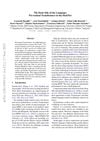 1 citations,
October 2023
1 citations,
October 2023 Syntax-based neural networks can match Transformers in handling unseen sentences.
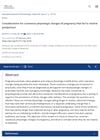 1 citations,
February 2022 in “International Journal of Dermatology”
1 citations,
February 2022 in “International Journal of Dermatology” Some skin changes from pregnancy like hair loss, excessive hair growth, palm redness, and stretch marks may not go away after birth and could suggest a misdiagnosis or hidden condition.

Eating less calories, focusing on complex carbs, and reducing fats can help manage type II diabetes.

The new hydrogel helps heal burn wounds better than current options by reducing bacteria and inflammation.
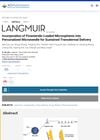
The new microneedle system safely delivers finasteride through the skin to treat hair loss.
 October 2023 in “The Open public health journal”
October 2023 in “The Open public health journal” Alopecia greatly affects Greek women's daily life, relationships, and self-image, with mixed social support and dissatisfaction with treatments.
























